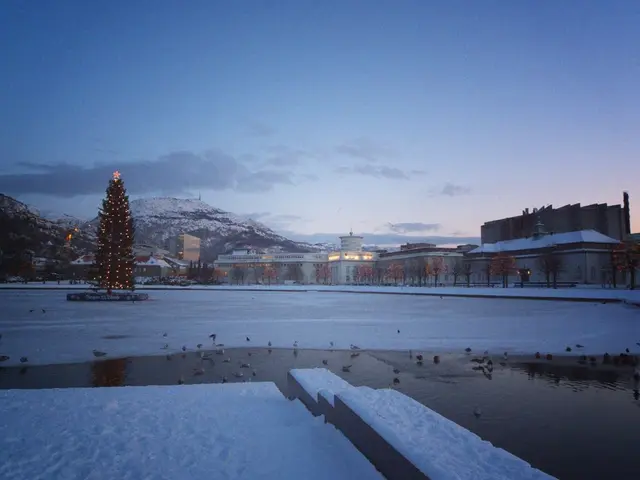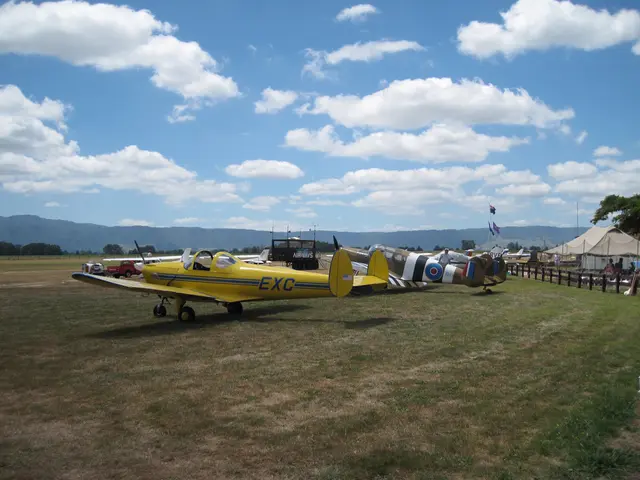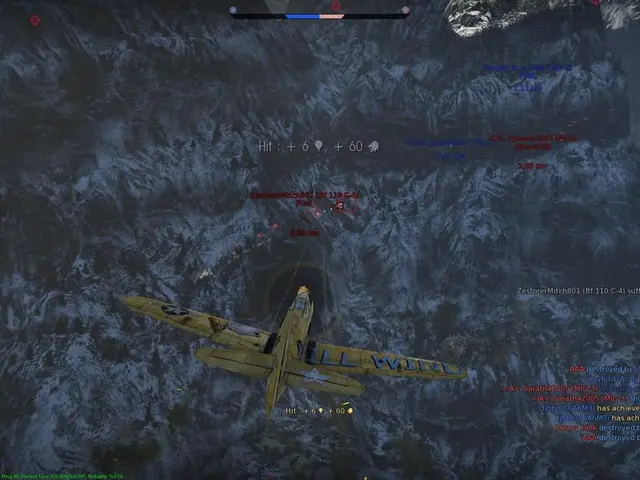Remembering the Katyn Massacre: A Stain on the Past, a Lesson for Today
Polish Leader Duda on 85th Katyn Massacre Anniversary: Preplanned Genocide Act
On the somber occasion of April 13, Poland honored the 85th anniversary of the Katyn Massacre, a dark episode etched into the nation's history. With solemnity, President Andrzej Duda underscored the premeditated Soviet act of genocide that claimed the lives of Poland's intellectual and professional elite during World War II. Below, we delve into the horrors of this massacre, its impact on Polish society, and the enduring legacy of the tragedy.
Echoes of a Broken Past
The Katyn Massacre refers to the cold-blooded execution of over 22,000 Polish military officers, intellectuals, and state officials by the Soviet NKVD in 1940. The victims were inmates of camps like Kozelsk, Starobelsk, and Ostashkov, as well as those held captive in Soviet-occupied eastern Poland. The brutal murders took the form of gunshots to the head and burial in mass graves - at Katyn Forest, Miednoje, Kharkiv, and other such locations.
Among those slain were the cream of Poland's pre-war elite, including military officers (almost half of Poland's officer corps), academics, doctors, engineers, lawyers, teachers, and writers. The deliberate targeting of Poland's intellectual and professional class aimed to cripple the nation's ability to rebuild itself as an independent state, wiping out 25% of Poles with higher education degrees and effectively erasing a generation of leaders who could have played pivotal roles in post-war reconstruction and governance.
These individuals were the backbone of pre-war Poland - teachers, doctors, scientists, and military officers who proudly fought for their nation against both Nazi Germany and the Soviet Union. Their deaths formed part of a strategy to weaken Poland by eliminating its intellectual and leadership class.
Distortions and Deceit: The Soviet Legacy
The crime was not only tragic but compounded over decades by deceit, denial, and disinformation orchestrated by Soviet authorities. For years, Moscow falsely attributed the massacre to Nazi Germany. Following the discovery of the mass graves in 1943, Soviet leaders refused to allow an international investigation. This cover-up was accepted by communist governments in Poland until the late 1980s, further alienating Poles from their Soviet-imposed rulers and deepening mistrust.
Soviet authorities' efforts to erase the Katyn Massacre from history were not effective in silencing Poland. Instead, the event became a powerful symbol of Polish suffering under totalitarian regimes and a rallying point for anti-communist sentiment.
Honoring Sacrifices: A Commitment to Memory
President Duda's memorable comments on that solemn Sunday in Krakow emphasized the need to honor and remember the heroes lost in the Katyn Massacre. Their legacy transcends the tragedy and serves as a timely reminder of the importance of defending and preserving democratic values in the face of oppressive regimes.
Across Poland, ceremonies were held to commemorate the victims, both past and present. The lost souls included not only those who perished during the Katyn Massacre, but also those who paid the ultimate price during the plane crash near Smolensk in 2010. The president's speech was a call for eternal remembrance, concluding with the words, "Glory and honor to the heroes. Eternal memory to those who fell. Eternal shame on their murderers."
As we reflect on the Katyn Massacre and pay our respects to those who perished, we must also strive to learn from the past. The tragedy acts as a stark reminder of the consequences when a nation's intellectual and leadership class is systematically annihilated by a powerful and oppressive regime. Now more than ever, it is crucial to hold the line against those who seek to suppress national identities, suppress truth, and manipulate history.
references:
[1] BBC News. (2010, April 12). Katyn massacre: Poland marks 70th anniversary of the 1940 massacre.https://www.bbc.com/news/world-europe-10204678
[2] United States Holocaust Memorial Museum. (n.d.). Katyn Forest Massacre.https://www.ushmm.org/learn/photographs/photo-essays/catastrophe-teachings/katyn-forest-massacre
[3] Polish Institutue of National Remembrance. (n.d.). Katyń: Encyclopedia of the Polish Underground State. https://emplate.pism.pl/k/technologia/katy%C5%84.php?language=en
- The Katyn Massacre, a gruesome historical incident, serves as a stark reminder of the consequences of war-and-conflicts, particularly when it targets a nation's intellectual and professional elite, such as military officers, academics, doctors, engineers, lawyers, teachers, and writers.
- The Katyn Massacre, a premeditated Soviet act of genocide during World War II, resembles modern-day threats to national identities and democratic values, reminding us of the importance of upholding general-news and law to prevent such atrocities.
- The horrors of the Katyn Massacre were not only tragic but were also compounded by decades of deceit, denial, and disinformation by the Soviet government - a chilling example of the dangers of politics and the manipulation of history.
- As we honor those who perished in the Katyn Massacre, we must also recognize the role of education in preserving our history and passing down lessons to future generations to prevent similar acts of crime.
- Artificial Intelligence (AI) and space exploration, while advancing human civilization in various aspects, should always be guided by the lessons of history, such as the Katyn Massacre, to promote peace, democracy, and respect for human rights, shaping a better tomorrow for all.






